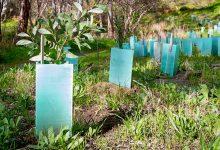The Climate Change Authority has launched a new review of the federal government’s Emissions Reduction Fund, which will consider how the scheme can be used to support economic recovery efforts from bushfires and the Covid-19 pandemic.
The review will put the Morrison government’s flagship policy for reducing greenhouse gas emissions under the spotlight, during a period of subdued interest from abatement project proponents and amid questions around its ability to deliver on the government’s targets.
Under the Emissions Reduction Fund, the federal government offers to purchase emissions reductions from a range of abatement projects that include avoided deforestation, revegetation and reduced emissions from waste and energy use.
While the Emissions Reduction Fund received strong interest after it was established in 2015, the level of participation under the fund has reduced considerably.
In launching the review, the Climate Change Authority has released a consultation paper, which highlights how emissions reductions purchased under the Emissions Reduction Fund have stalled, and will seek suggestions on how it can be reinvigorated.
“The Authority’s 2020 review will take into account the operation of the ERF and the changes made to it in the period since the Authority’s last review in 2017,” Chair of the Climate Change Authority Dr Wendy Craik said.
“It will consider the overall performance of the scheme as well as focus on three main themes: maintaining integrity and optimising governance, managing risks to abatement, and opportunities for enhancing outcomes.”
The most recent auction held under the Emissions Reduction Fund, in early April, attracted increased interest but was still a long way off the level of emissions reductions the government needs purchase in order to achieve its Paris Targets.
 In its consultation paper, the Climate Change Authority said that it will also consider what role the Emissions Reduction Fund can play in supporting economic recovery efforts, following the disruption caused by Covid-19.
In its consultation paper, the Climate Change Authority said that it will also consider what role the Emissions Reduction Fund can play in supporting economic recovery efforts, following the disruption caused by Covid-19.
“The COVID-19 pandemic’s impact on the Australian economy will not be fully understood for some time but is expected to be significant for many sectors,” the consultation paper says.
“The ERF is an economy-wide scheme that provides incentives to business and landholders to undertake emission abatement activities through the Government purchasing of ACCUs.”
“These activities offer a range of benefits for businesses and landholders including the ability to decrease their energy costs, increase their production efficiency and diversify their income.”
The authority added that it would also consider the role the scheme can play in supporting responses to the impacts of bushfires, particularly noting the high level of participating under the scheme by land and vegetation based projects.
“As part of this review, we will consider whether potential exists for any further measures with the ERF, including increased coordination with other policies, to achieve this end,” the consultation paper says.
“There is also the potential for the ERF, together with other programs, to contribute to enhancing the recovery from drought or bushfire in affected areas and to bolster ongoing land management practices.”
The Climate Change Authority said that it would look to provide a flexible approach for those seeking to make a submission to the review, in light of the change arrangements that many have in place in response to Covid-19.
The authority last reviewed the Emissions Reduction Fund in 2017, finding no real flaws with the program that is administered by the Clean Energy Regulator but made a series of recommendations to strengthen the environmental integrity and operation aspects of the fund.
Federal energy and emissions reduction minister Angus Taylor also appointed an expert panel, led by former Origin Energy chief Grant King, to identify additional opportunities to reduce emissions using funding under the Climate Solutions Fund.
It is understood that the expert panel has delivered its findings and recommendations to the government, but they have yet to be released publicly.
The Climate Change Authority has posed a series of questions for stakeholders in a consultation paper and will receive submissions in response through to 20 May 2020. The paper is available on the Climate Change Authority’s website.
RenewEconomy and its sister sites One Step Off The Grid and The Driven will continue to publish throughout the Covid-19 crisis, posting good news about technology and project development, and holding government, regulators and business to account. But as the conference market evaporates, and some advertisers pull in their budgets, readers can help by making a voluntary donation here to help ensure we can continue to offer the service free of charge and to as wide an audience as possible. Thankyou for your support.










